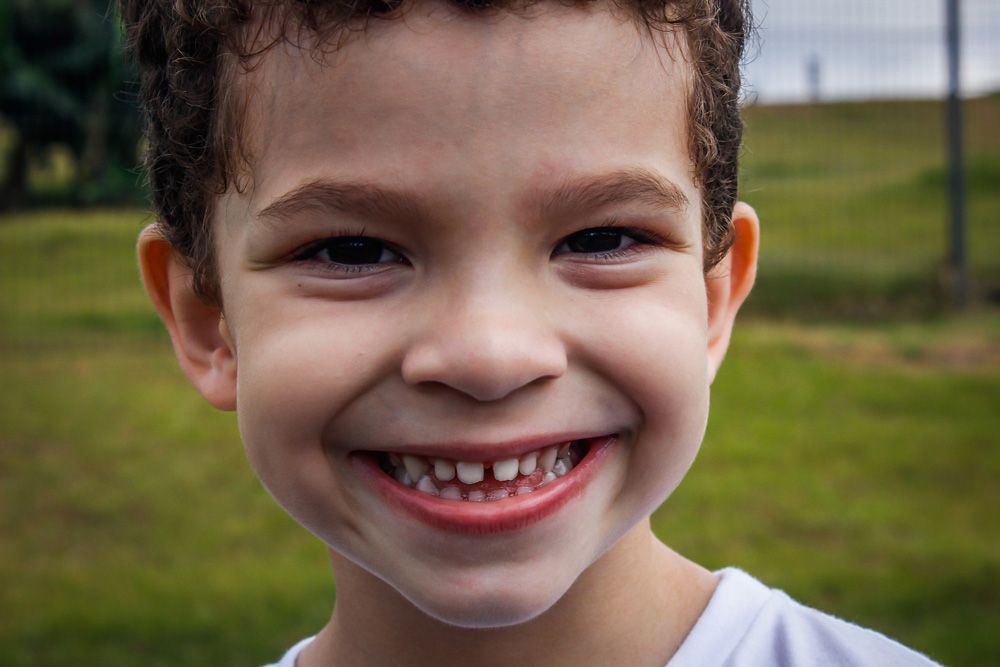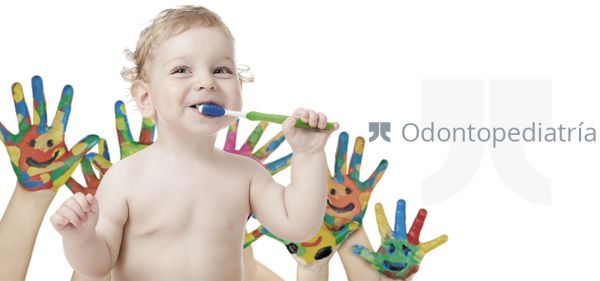Frequently asked questions about children's dentistry

Children’s, or pediatric, dentistry prevents and treats oral diseases in children. Paying particular attention to young teeth and jaws is crucial when it comes to preventing more serious problems from developing over the years.
You should regularly check your child’s mouth to detect any possible issues that may arise from birth on, and particularly during children’s first years of life.
In the absence of any issues or problems with your baby’s oral development, a good time to start tracking your child’s dental health is when they start to get their first teeth (between 6 months to a year old). Taking infants to a dentist for children is highly recommended: this accustoms the child to visits to the dentist, helping erase fears while raising the child’s awareness about the importance of proper dental habits.
Frequently asked questions about children's dental health
As for children's dentistry, it’s quite normal to have a series of questions about the best way to care for your little one’s teeth and mouth. Our dental clinic for children in Barcelona has written this post to answer the most frequently asked questions.
Read them all!
Is breastfeeding recommended?
Besides helping infants to correctly develop their jaw and tongue, breastfeeding greatly enhances the baby's physical, immunological and affective development. Make sure you clean or brush your little one’s teeth or mouth properly after your baby eats, particularly after the last meal before going to bed at night.
Are bottles recommended?
Ideally, bottles shouldn’t be used while your baby can be breastfed. Not only does breastfeeding provide a host of immunological, psychological and affective benefits; it also helps babies’ jaw and tongue develop correctly and facilitates correct swallowing. If you need to use a bottle, use one with an anatomically correct nipple.
At what age do the baby teeth come in?
It varies from child to child, but primary (baby) teeth usually start coming in around six months of age. The first baby teeth to erupt are usually the lower incisors.
What do I do if my child has tooth pain?
The eruption of deciduous teeth (also known as milk teeth, baby teeth and temporary teeth) can be bothersome and sometimes painful. During this process your child may experience increased salivation and irritability and a decreased appetite.
During this period we recommend keeping your child well-hydrated (increase water intake, provide colder food, like cold oatmeal). We do not recommend the use of topical applications that numb the gums, as they can affect and interrupt the teething process.
At what age do children begin to lose their baby teeth?
Just like with teething, the age can vary, but milk teeth fall out and are replaced by permanent teeth around the age of 6.
At what age should kids start brushing their teeth?
Oral care, cleaning and hygiene is important from birth and always under the careful supervision of an adult as soon as the child begins to be more independent.
My child has bruxism, what can I do?
Pediatric bruxism happens when children grind their teeth, either during the day or at night during sleep. This usually occurs in children between 4 and 10 years of age, a stage that coincides with losing baby teeth and permanent teeth coming in (approximately 80% of children experience bruxism at some point in their childhood).
Casanova25 recommends several solutions to treat bruxism:
- Make sure your child is calm and relaxed before sleep. There are several ways to make this happen: a relaxing bath before going to bed, reading a story, a quiet chat before going to sleep, etc.
- Avoid “parafunctional behaviors”: nail biting or other habitual uses of the mouth unrelated to eating, drinking, or speaking.
These are the answers to the most frequently asked questions about keeping kids’ teeth and mouth healthy.
Do you have any other questions about pediatric dentistry? Don’t hesitate to contact us, make an appointment or bring your child to come see us at our dental clinic in Barcelona. We’ll be happy to help and answer any questions you have.


